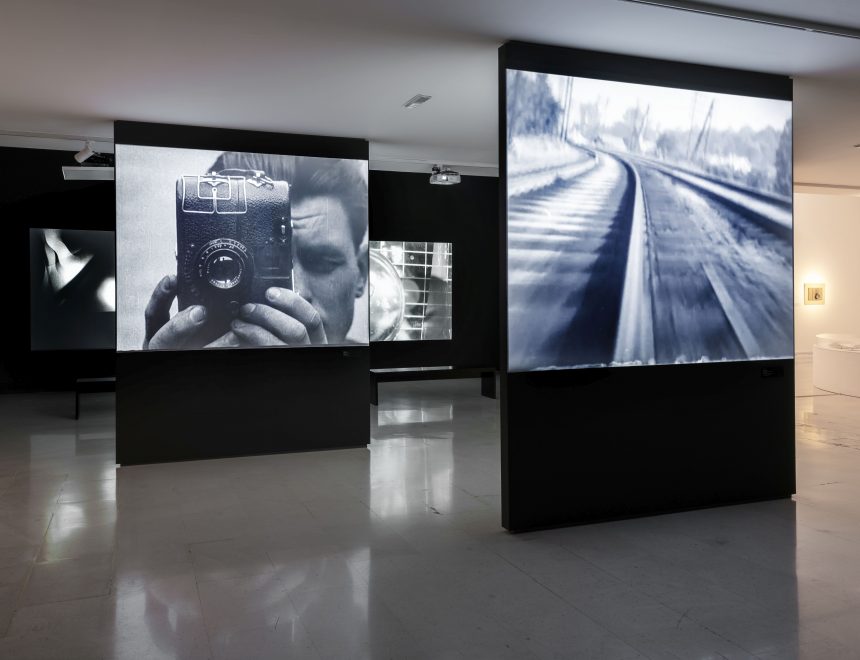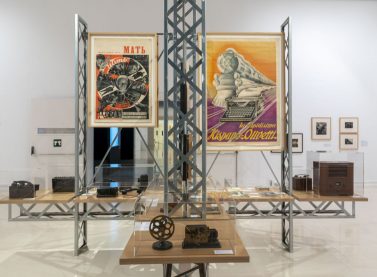A visit to the exhibition Mechanical and Technical Imaginaries in the IVAM Collection with Mª Jesús Folch, curator of the exhibition and curator of the IVAM
Mechanical and Technical Imaginaries is a new reading from the IVAM collection, through more than 200 artworks, which illustrates the interest of artistic practices in imagining the mechanical conception of the universe by borrowing elements from industrial, scientific and technical procedures, new materials, big inventions or means of transport and communication.
The curator, M.ª Jesús Folch, takes us on a visit to the 10 rooms that make up the exhibition, during which she will bring us closer to the main artistic research that took place throughout the 20th century and will help us to understand the connection between science, art and technology. The exhibition is structured along thematic lines that act as communicating vessels crossing transversely through the rooms. They analyze issues and concepts that arise and reappear in distant chronological times such as the interdependence between technology and corporeality (Umbo, Arturo Ballester or Pere Catála Pic, Gary Hill, Daniel Canogar, Maribel Domenech or Jana Sterback); the interest in new materials and science-based technicalities (Naun Gabo, Cesar Domela, Moholy Nagy, Marcel Duchamp, Soledad Sevilla, Elena Asins, José Mª Yturralde, Pablo Palazuelo); the transition from experimental cinema, overloaded with dynamic montages, to the conceptual practice of the video camera, full of socio-political criticism (Joris Ivens, Jean Mitry, Germaine Dulac, Joan Jonas, Dara Birnbaum, Miralda and Benet Rossell); mechanical imaginaries, mass production methods and industrial landscapes (Germaine Krull, Agustín Jiménez Espinosa, Boris Ignatovich, Joan Cardells, Gabriela Kraviez, Susana Solano, Bernd and Hilla Becher or Thomas Ruff); the treatment of female working conditions (Valentina Kulagina and Natalia Pinus or Inmaculada Salinas);and the visionary machines that connect historical spaces, social situations, natural elements and existentialist concepts (Gilberto Zorio, Ángeles Marco, Fischli & Weis, Gordon Matta Clarck, Iñigo Manglano-Ovalle or Carlos Sáez).




